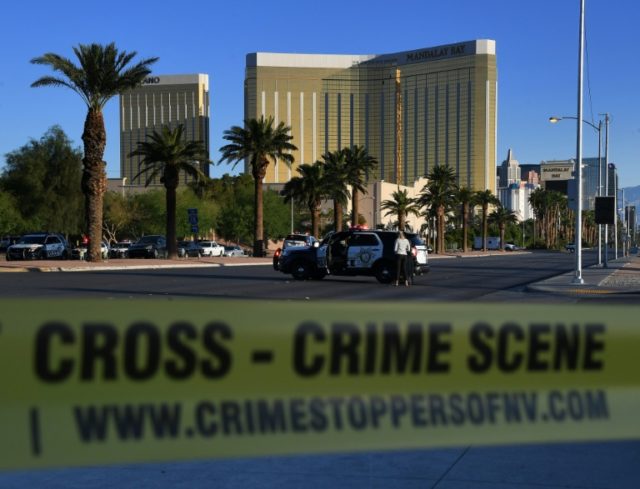Blue tick Twitter users have been using the mass shooting incident in Las Vegas to whip up identity-based anger and foster victimhood mentalities.
“I don’t understand,” wrote user Greg Baum, “Why it’s not terrorism. Because the shooter’s not Muslim?”
Re Las Vegas, I don't understand:
1. Why it's not terrorism. Because the shooter's not Muslim?
2. How guns make America safer.— Greg Baum (@GregBaum) October 2, 2017
“Just bc shooter wasn’t Muslim doesn’t mean not terrorism,” wrote Daily Beast contributor Dean Obeidallah.
Waking up to horrific mass murder in Las Vegas-police say "no ties to terrorism." Just bc shooter wasn't Muslim doesn't mean not terrorism
— (((DeanObeidallah))) (@DeanObeidallah) October 2, 2017
Both of these statements and the hundreds more on social media this morning fundamentally and willfully misunderstand the nature and definition of terrorism. I’m here to help:
terrorism — The unlawful use of violence or threat of violence, often motivated by religious, political, or other ideological beliefs, to instill fear and coerce governments or societies in pursuit of goals that are usually political. See also antiterrorism; combating terrorism; counterterrorism; force protection condition.
That’s the definition as used by the U.S. Department of Defense.
It is confirmed, in more succinct ways, by almost every English-language dictionary, such as Oxford, which defines terrorism as “The unlawful use of violence and intimidation, especially against civilians, in the pursuit of political aims”.
At the times of the tweets sent by Twitter celebrities and left-wing activists, authorities had not identified a motive. We often hear in Europe about “mental health related” incidents which turn out to be terrorist attacks. But since the shooter in Vegas was named as Stephen Paddock, the left could not countenance this as a potential motivator.
The Islamic State somewhat dubiously claimed responsibility for the attack, but authorities still say they have yet to make any link to international terrorism. That’s why that as at the time of writing, at 12:28pm (EST) on Monday October 2nd, the Vegas shooting is not terrorism.
By its definition, “causing terror,” as Paddock evidently did, is not “terrorism”. If a political, ideological, or religious motive can be identified, then it is terrorism, whether he is white, black, brown, or otherwise.
That’s why we called the attack on a mosque in Finsbury Park, London an act of terror. It’s why “Allahu Akbar”-screaming migrants are terrorists. It’s why Charlottesville was terrorism, too.
As the left can often be heard to utter when an Islamic terror attack happens, “Terrorism has no color or creed”. But one religion, it should not be controversial to note, has far more of its adherents committing terrorist atrocities in its name around the world than any other. Instead of asking, “Why?” or “How can we stop this?” the left is hell-bent on creating identity-politics talking points on the back of attacks such as these.
We may well find Stephen Paddock had political, ideological, or religious goals. But until these indicators are ascertained beyond doubt, it is impossible to responsibly refer to this attack as terrorist in nature.
The same principle applies to Islamic attacks too, by the way. But Muslim terrorists often give us a clue when shouting “Allahu Akbar” before detonating their suicide vests or stabbing civilians. Even if they don’t, authorities usually know within a short amount of time — from mobile phone content or social media footprint — if the motive fits the technical definition of terrorism.
The point behind blue tick Twitter’s objections is to change terrorism’s definition — as the left is so good at doing — to encompass gun violence. In doing so, they would, for example, create “terrorists” out of many black men in Chicago.
It is manifestly a nonsense to describe gun violence sans ideological motive as “terrorism”, not least because of the charging, legal, and sentencing implications.
So no, it’s not “not terrorism” because Stephen Paddock is white. It’s just not terrorism until it is.
Raheem Kassam is the editor in chief of Breitbart London and author of No Go Zones: How Sharia Law is Coming to a Neighborhood Near You

COMMENTS
Please let us know if you're having issues with commenting.